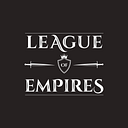What is a RTS (Real Time Strategy) game?
A real-time strategy (RTS) game is a type of game where players progress simultaneously with each other in “real-time” as opposed to taking turns. A real-time strategy game may also be referred to as a real-time war game. RTS games generally have four main elements. These are units, buildings, technologies and resources. All of these elements are deliberately, progressively and systematically created or generated by the players during the game.
Some of the most popular RTS game series include “StarCraft”, “Warcraft”, “Command and Conquer”, “Company of Heroes”, “Warhammer” and “Age of Empires”.
In RTS games, players assume the role of an all-seeing commander, architect and logistician. RTS games can be sedating experiences with the layering of organizational challenges. They also set the stage for fast-paced and intense gameplay because players are forced to make fast-paced decisions. As a comparison, in TBG (Turn-based games) and RPG (Role-playing games), a player has control over only one single powerful unit called “hero” or “champion”. In such games, players usually don’t have a direct control over the progression, development and creation of their gameplay; instead, these “heroes” march forward along set paths or play the same repetitive levels.
RTS games are more than just games or idle ways to pass the time; they are playgrounds for exercising the mind, and they do so in ways that few other genres can. Among other things, playing RTS can strengthen skills like self-analysis, critical thinking, planning and decision making, and reinforcing a proactive and positive approach to life and challenges.
In RTS games, players are in direct control of their gameplay and decisions. Real Time Strategy encourages players to make the best decisions they can, both in the moment and for the future. It also motivates players to make tactical and accurate decisions based on available information & resources because that is what their game depends on.
Economy is another major component of RTS games. RTS games are games of competitive economics, or competing economies. Key to success in RTS is the understanding and exploitation of these economies to leverage an advantage over opponents.
Another core tenant of RTS is that players are in direct competition with one another pursuing similar ends in parallel. Players must attempt to build their resources, defend their bases and launch attacks while knowing that the opponent is scrambling to do the same things. If players are not directly competing against one another, the game simply doesn’t cut the mustard, as the saying goes!
Competing against one another is becoming increasingly popular in gaming industry. Even tournaments are held for this competition. In RTS world also, tournaments have been held for both StarCraft and Warcraft III since their 1998 and 2002 releases. These game tournaments have been so successful that some players have earned over $200,000 at the Warcraft III World Championships. In addition, hundreds of StarCraft II tournaments are held yearly, as it is becoming an increasingly popular branch of e-sports. Notable tournaments include MLG, GSL, and Dreamhack.
There are many genres in video gaming industry and different players have different preferences. RTS is one of the most popular genre. RTS games are addictive, filled with adrenaline and they give a true game feel to players. There are many big names of RTS games in traditional gaming industry. However, in blockchain gaming industry, there is none. Almost all play-to-earn blockchain games follow the same path of RPG or TBG genres. Considering this huge gap in the market, we are bringing the first ever RTS play-to-earn game League of Empires in the blockchain gaming market for crypto enthusiasts as well as for the players who play games just to enjoy.
